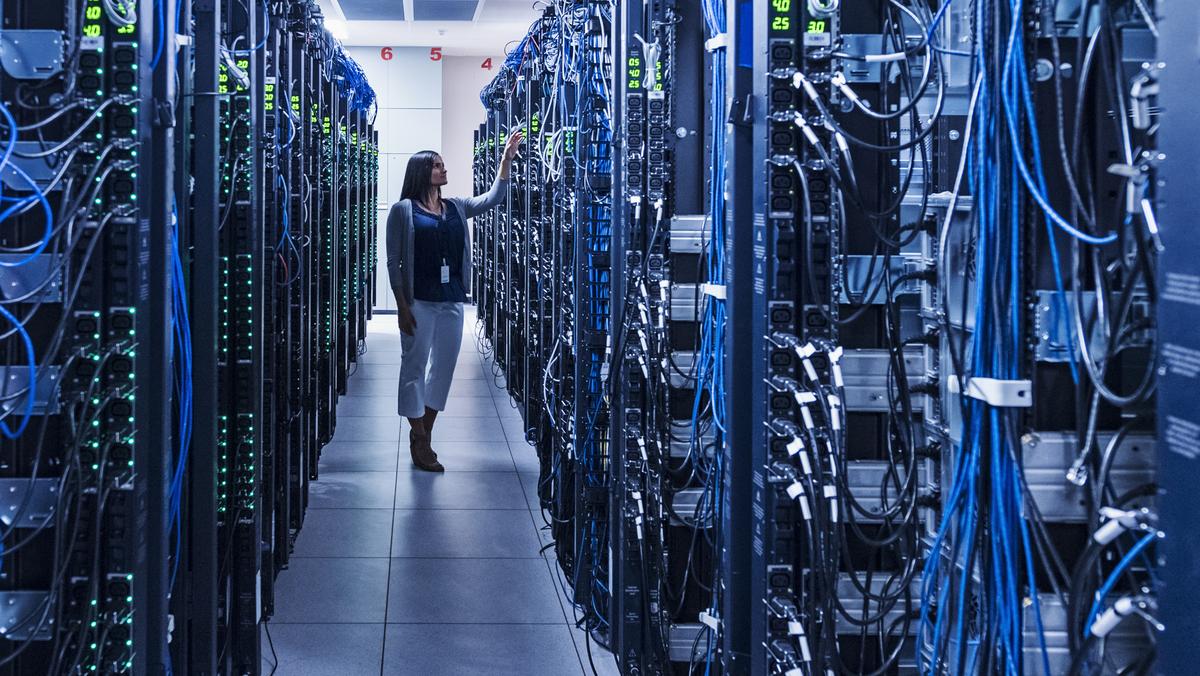7 Game-Changing Benefits of Enterprise Servers

Strong 8k brings an ultra-HD IPTV experience to your living room and your pocket.
As your business grows, so does your need for powerful, reliable technology infrastructure. You may find that your current server setup is struggling to keep up with increased usage and demands. It's time to consider upgrading to enterprise-level servers designed specifically for large organizations.
Enterprise servers offer scalability, security, and high performance that can help take your business to the next level. With an enterprise solution, you can easily add more processing power, memory, storage and users as your technical needs evolve over time. Scaling up is as simple as plugging in additional server modules or expanding your existing rack setup.
In this blog post, we'll explore 7 key benefits of investing in an enterprise server solution.
1. Rock-Solid Reliability
You can't afford downtime when it comes to mission-critical systems like your databases, websites, and applications. Enterprise servers are engineered with high availability in mind. They feature redundant components like dual power supplies, hot-swappable hard drives, and error correction capabilities. If one part fails, the system keeps running smoothly. You also get robust hardware monitoring and alerting.
The servers are easy to service and maintain too, minimizing disruption from repairs or upgrades. Overall uptime percentages of 99.999% are achievable with these servers, keeping your operations running without a hitch.
2. Scalable Processing Power
As your business expands, your computing needs will grow as well. Enterprise servers are highly scalable to support increased processing loads over time. Here are some key ways servers provide scalable processing power:
- CPUs: These servers allow for easy upgrades to more powerful CPUs. You can add additional CPUs in slots or replace existing ones with faster models as your workload demands. Many support up to dual 20-core or higher CPUs for massive processing capacities.
- Cores/threads: Even within the same CPU package, enterprise CPUs provide an enormous number of cores and threads to divide workloads across. This utilizes parallel processing for improved performance.
- Memory: Memory capacities on servers start at hundreds of gigabytes and can scale up to multiple terabytes. Additional DIMM slots allow increasing installed RAM as needed over the lifespan of the server.
- Storage: Servers support both internal and external storage expansion. HDD and SSD drives can be added via hot-swap bays. You can also attach high-capacity SAN/NAS storage for databases and file shares.
- I/O expansion: Features like PCIe slots enable adding dedicated network interface cards, RAID controllers, and GPU/FPGA cards to boost I/O-intensive work. New slots can be populated as processing demands grow over time.
- Hypervisors: Virtualization allows splitting physical servers into many independent VMs. As usage increases, additional VMs can be activated without added hardware by leveraging available resources more efficiently through hypervisors.
- Server nodes: For extremely large workloads, multiple enterprise servers can be clustered together as parallel processing nodes. Load is balanced across the node group for unmatched aggregated performance potential.
- Resource allocation: Virtualization and clustering enable dynamically allocating CPU, memory, storage, and I/O resources between workloads as business needs fluctuate. Underutilized hardware on idle systems can be reassigned in real-time.
The modular, scalable designs of these servers ensure your infrastructure has plenty of overhead to absorb processing increases from both organic growth and new initiatives over the coming years. There's no need for disruptive, expensive hardware forklifts as your computing footprint expands.
3. Better Performance for Demanding Apps
Certain applications have stringent performance requirements that consumer-grade devices can't deliver. Enterprise servers are engineered to support mission-critical software and large concurrent user loads. You'll benefit from features like high-powered multi-core CPUs, enormous memory capacities, lightning-fast solid-state storage, advanced networking capabilities, and high-performance expansion slots.
Graphics and AI/ML workloads can be accelerated using GPUs or FPGAs. All this added grunt means data-hungry or real-time apps perform at their best. Users and customers will experience optimal response times and throughput. Your staff can be more productive when tools run smoothly and quickly.
4. Fortified Security Protections
As a business, you have a duty to protect sensitive customer information and intellectual property assets.
- Servers incorporate robust security at both the hardware and software levels.
- Physical access is restricted through locked chassis and additional authentication steps.
- The BIOS can be configured to only boot verified operating systems. Encryption secures data during transmission and at rest.
- You also get automatic security updates from the manufacturer. Additional options include threat detection, compliance reporting, and centralized management of policies.
Consolidating your infrastructure onto enterprise-grade platforms strengthens your overall security posture against evolving risks. Valuable company data and systems stay safe from cyber threats.
5. Enhanced Manageability
As IT systems become more complex, effective management is critical. Enterprise servers are designed to be simple to deploy, configure, update, and maintain from a central console. Features like remote lights-out management, virtualization, and configuration templates speed common tasks. You can monitor performance, diagnose issues, deploy patches, and back up systems from any internet-connected device.
Advanced tools provide detailed hardware analytics and predictive failure warnings. Multitenancy allows for securely sharing resources between departments. All this helps IT teams work more efficiently at scale. Downtime due to unplanned outages or human errors is minimized through automated management capabilities.
6. Lower Total Cost of Ownership
While the up-front investment may seem high, enterprise servers save money in the long run through reduced operational costs. Their robust construction means infrequent component failures; replacement parts tend to last the 5–10 year lifespan of the machines. Energy efficiency cuts power bills; some models use less than half the electricity of older systems. Easier maintenance lowers labor expenses too.
Built-in redundancy eliminates unplanned downtime costs and SLA penalties. You also gain high residual value by reselling or reallocating servers after years of reliable use. When totaled over a 5-year period, TCO is often lower versus consumer or small-business solutions that require more frequent refreshes.
7. Optimized for Virtualization
Virtualization solutions allows you to split a physical server into many independent virtual machines, each with its own operating system and applications. This makes extremely efficient use of hardware resources. Enterprise servers are engineered from the ground up to support virtualization with features like VT-x/EPT, large memory capacities, SSD caching, and high-speed networking. You gain flexibility to dynamically allocate virtual workloads as needed without disruption.
In Summary
By consolidating your infrastructure onto an enterprise server platform, you set your business up for sustainable growth. Their massive power, security, scalability, and manageability enable them to support increasingly complex operations into the future. TCO is lowered through reduced maintenance, energy costs, and a maximized hardware lifespan. Downtime risks are minimized, while application performance is optimized. Your IT team gains efficiency through automation and simplified administration.
Note: IndiBlogHub features both user-submitted and editorial content. We do not verify third-party contributions. Read our Disclaimer and Privacy Policyfor details.


